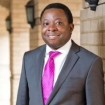PwC Nigeria’s maiden edition of the Family Business Survey report comes at a period of economic recovery. Family businesses (FBs) in the country are optimistic about future growth. In order to realise this growth ambition, majority of FBs are considering private equity as a source of funding for business expansion and diversification. This report is also being published at a time when technological transformations and digital disruptions are revolutionising whole industries. The pace and transformative power of technology means that Nigerian family businesses cannot afford to ignore the digitisation trend.
The Family Business Survey is an annual global market survey among key decision makers in family businesses within a number of PwC's key territories. Every two years, PwC global conducts the survey globally to explore the trends in family businesses. The survey covers questions on the family business’ values and purpose, performance and challenges, as well as preparations for the future. For this year’s report, we surveyed 2,953 companies in 53 territories, covering a wide range of sectors, from agriculture to technology.
There is an enormous opportunity for family businesses to start generating real gains from their values and purpose by adopting an active approach that turns these into their most valuable asset.
We hope you’ll find the report valuable and that its insights will help you make better decisions for your family business.
Key findings from Nigeria's Family Business Survey 2018
Explore the key Nigeria findings from PwC's 9th Global Family Business Survey.
Growth among Nigerian family businesses over the last 12 months is lower than the global average. 53% of Nigerian family businesses have seen growth over the past 12 months, including 20% who have seen double digit growth. Globally, 69% of family businesses grew. However, 87% of Nigerian family businesses expect to grow over the next two years, which is slightly higher than the global average (84%). Additionally, businesses in Nigeria are more likely to say growth will be quick and aggressive (40% vs. 16% globally).
Family businesses in Nigeria are more likely than the global average to cite the economic environment and corruption as key challenges over the next two years. Regulation is mentioned by more than half. In terms of important personal and business goals, profitability is crucial (93% cite this), along with the maintenance of the best talent (via recruitment and retention) and contributing to the community.
33% say they have a formal mid-term strategic plan in place (the global average is 49%). In addition, more than half (53%) of Nigerian family businesses expect to change their business model (vs. 20% globally) and approaching half (47%) of these businesses will earn the majority of revenues from new products and services (vs. 18% globally). There is a lower level of diversification in Nigeria than average with only 7% operating in multiple sectors and markets (the global average is 26%).
10% of businesses have a robust, documented and communicated succession plan in place (slightly lower than the global average of 15%). 77% of family businesses in Nigeria plan to pass on management and/or ownership to the next generation.
73% of Nigerian family businesses feel they will have made significant steps in terms of digital capabilities in the next two years (higher than the 57% who say this globally). Nigerian family businesses have a slightly lower level of perceived vulnerability to digital disruption (23%) or a cyber-attack (33%) compared with the global average.
67% of Nigerian family businesses have a clear sense of agreed values and purpose as a company but only 43% have these values or a company mission in a written format (the global average is 49%). 70% express a commitment to Corporate Social Responsibility











